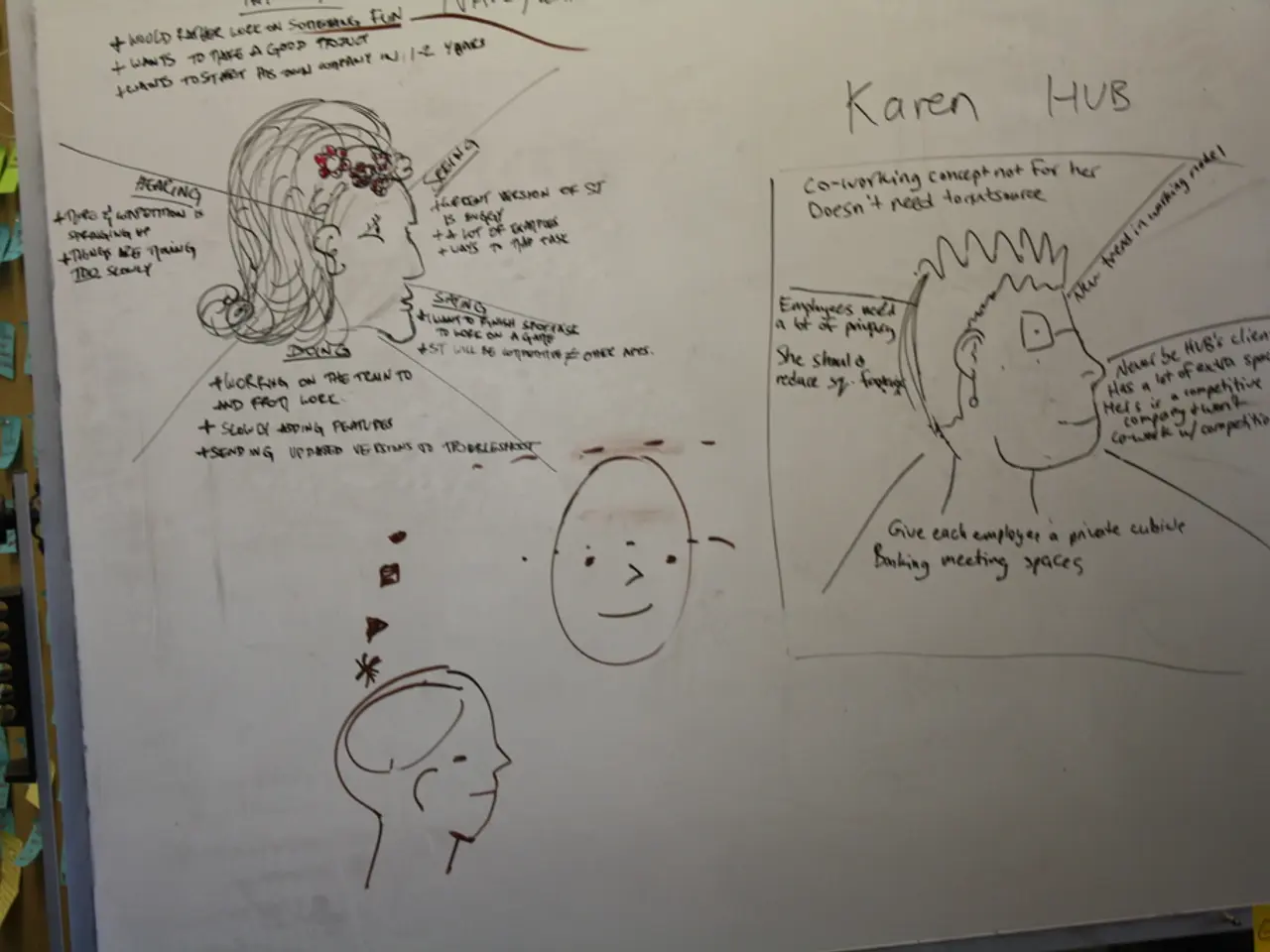Overcoming Inner Criticism: Strategies for Writing Without Creative Self-Destruction
**Transforming the Inner Critic: A Guide to Enhancing Creative Writing**
In the world of writing, the inner critic can often be a formidable obstacle, hindering creativity and productivity. However, with a few strategic adjustments, this voice can be transformed into a constructive ally. Here are some practical steps to help retrain your inner critic and foster a more productive writing practice.
## Identifying and Naming the Inner Critic
The first step in taming the inner critic is recognising its presence. Acknowledge that this voice is not a reflection of your truth, but rather a product of fear. Giving it a nickname can help you identify it as separate from yourself, thereby diminishing its power over your creative process.
## Celebrating Small Wins
Instead of striving for perfection, focus on progress. Acknowledge small achievements in your writing; this rewires your brain to associate writing with success rather than anxiety or failure. Over time, accumulated small victories strengthen your confidence and make it harder for the inner critic to derail your efforts.
## Reframing Criticism as Coaching
Transform your inner critic into an inner coach by changing how you interpret feedback from yourself. Instead of harsh judgments, practice offering yourself supportive, constructive commentary—like you would for a fellow writer. Ask yourself specific, helpful questions: “What works here?” “How can I clarify this section?” rather than allowing vague negativity.
## Engaging in Playful Writing
Set aside time to write something purely for enjoyment, without concern for quality or purpose. Exercises like writing a single “pointless” paragraph in a distinctive voice can help you reconnect with the joy of writing and discover hidden strengths when you revisit the work later.
## Cultivating a Creative State
Activities like walking in nature or slow, mindful writing can help shift your brain out of anxious overthinking and into a more open, creative state, silencing the critic and inviting flow.
## Practical Habits for the Drafting Phase
- **Daily Small Wins:** List a writing accomplishment at the end of each session, no matter how minor. - **Timed Freewriting:** Write without stopping or editing for a set period; this builds momentum and bypasses the critic. - **Peer Read-Alouds:** Share drafts with a trusted peer and read sections aloud together for mutual, constructive feedback. - **Mindful Reframing:** When you catch critical thoughts, pause, name them, and reframe them as questions or encouragements. - **Regular “Play” Exercises:** Schedule short, playful writing sessions to break the critic’s hold and spark creativity.
## A Summary Table: Inner Critic vs. Inner Coach
| Inner Critic Approach | Inner Coach Approach | Practical Action | |-------------------------------|--------------------------------------|---------------------------------------| | “This is terrible.” | “What’s working here?” | Highlight one strong sentence. | | “I’ll never finish.” | “What’s the next small step?” | Set a 10-minute writing goal. | | “This isn’t good enough.” | “How can I make this clearer?” | Read passage aloud for clarity. | | Fear of imperfection | Focus on growth and progress. | Celebrate each draft completion. |
By consistently applying these strategies, you can retrain your inner critic into a supportive ally, leading to greater creative flow and productivity throughout the drafting process. Let the Story Speak Before You Judge Its Voice emphasises that the first draft is a whisper, a test, a beginning, and isn't supposed to be polished, but honest. It encourages letting the mess happen and silencing the critic to let your voice shine through.
Using Community to Bypass Isolation highlights the value of surrounding yourself with other writers who value process and joining critique groups that honour first drafts as experiments, not performances. Creating Rituals That Signal "Critic Off" suggests using physical cues to enter a creative state where the critic isn't invited, such as lighting a specific candle, playing a certain instrumental playlist, or writing in a designated "drafting-only" notebook or document.
Externalizing the Critic involves giving your inner critic a specific name and persona, and writing a letter to them expressing that they can return during revisions but are not needed during drafting. Curiosity Over Judgment suggests approaching drafting like a scientist or explorer, with curiosity about what might happen next, letting the story surprise you, and asking why if something feels awkward.
When the Critic Is Trying to Tell You Something suggests that the inner critic may sometimes carry helpful signals, disguised in anxiety, such as alerting you to a story problem, a scene that lacks stakes, or an emotional thread you've skipped. Process Over Product encourages falling in love with the act of writing, rather than just the end result, and celebrating time spent in the chair, not just word count.
In the realm of creative writing, news articles could delve into the transformative power of reining in the inner critic, detailing practical methods for cultivating a supportive inner voice. Science journals might explore the neurological impact of small wins and progress in writing practice on increasing confidence and reducing anxiety.
Health-and-wellness blogs could discuss mental-health benefits derived from an improved writing practice, focusing on the reduction of stress, improvement of self-esteem, and enhancement of emotional well-being. Similarly, mental-health publications could delve into the therapeutic potential of writing as a tool for self-discovery and emotional healing, emphasizing its role in boosting overall mental health.




